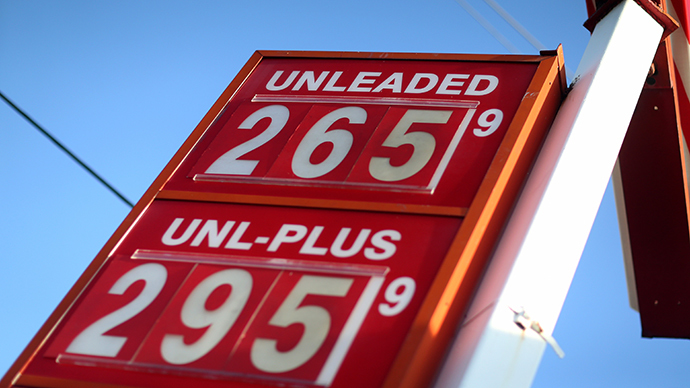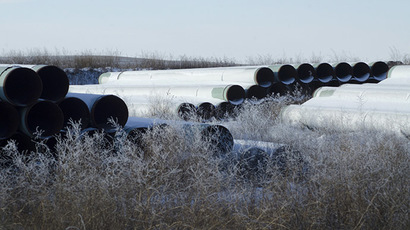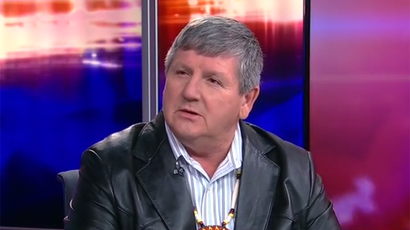Canada pressures US to pass Keystone XL as falling oil prices threaten project

The Keystone XL pipeline may no longer make economic sense to build, thanks to falling global oil prices. However, Canada's natural resources minister is in Washington to push hard for the project’s construction.
On Friday, the price of crude oil dropped below $60 a barrel, down from a high of $116 in June. Oil demand growth for 2015 was slashed by 230,000 barrels per day, and is set to only increase by one percent, or by 900,000 barrels to 93.3 million barrels per day. In 2014, that number was 92.4 million barrels per day.
The plummeting oil prices are a good thing for environmentalists opposed to the Keystone pipeline extension.
“Oil prices going low gives the president a landing place to reject the pipeline because Canada needs cheap and big infrastructure,” Jane Kleeb, founder of the anti-Keystone group Bold Nebraska, told Politico. “When oil prices are high, producing the expensive and high-carbon tar sands makes sense. But now that oil is low, the only way tar sands will continue to expand is if Canada gets big pipelines.”
The proposed extension would have allowed the transport of crude oil from Canada's tar sands to the Gulf of Mexico, traveling from Hardisty, Alberta in Canada to Steele City, Nebraska in the US. There, it would join the already-built Keystone pipeline, traveling to Patoka, Illinois or Nederland, Texas via Cushing, Oklahoma, through a newly completed extension.
By some estimates, the price of oil has already dropped below what investors in Keystone would need to break even, and some analysts believe further drops are in store, the Los Angeles Times reported.
"The recent decline in [oil] prices has to give the sponsors some pause," Chris Lafakis, a senior economist at Moody's Analytics, told the paper.
A recent State Department study found that when oil is selling for $65-$75 per barrel, it is a "potential danger zone" for oil production in western Canada – the point where transportation costs driven higher by failing to build the pipeline could "have a substantial impact" on the industry's growth, according to Politico.
The price of oil has lost 20 percent since the Organization of Petroleum Exporting Countries’ (OPEC) last meeting on November 27, when the consortium ‒ heavily influenced by Saudi Arabia ‒ decided not keep the market over-supplied in an attempt to drive out more high-cost producing nations, such as Russia, Venezuela, Iran, Iraq, the US, and Canada.
United Arab Emirates Energy Minister Suhail Al-Mazrouei says OPEC will maintain output at 30 million barrels of oil a day, and wants to monitor the price for three months before even considering a meeting about possible changes.
“We are not going to change our minds because the prices went to $60 or to $40,” Mazrouei told Bloomberg on Sunday at a conference in Dubai.
Within the US, the project faces an uphill battle for approval. In mid-November, the lame-duck US Senate failed to fast-track the Keystone XL pipeline project, falling one vote short of breaking a filibuster against the bill. The Nebraska Supreme Court is expected to rule as early as Friday on ongoing litigation in that could ultimately affect the pipeline route in that state.
It is amid this global setting that Canadian Natural Resources Minister Greg Rickford is in Washington, DC to meet with his American and Mexican counterparts, US Secretary of Energy Ernest Moniz and Mexican Secretary of Energy Pedro Joaquin Coldwell. Much of the agenda will focus on energy data and Mexico’s regulatory reforms for its oil and energy sector, but the three “will surely discuss energy infrastructure” as it pertains to the Keystone project, Global News reported.
Rickford told reporters at a Monday press conference that the project to carry oil sands from Alberta to Gulf of Mexico refineries would help the US end its dependence on unreliable sources of oil in the Middle East and elsewhere.
The US Congress is expected to take up the proposed legislation in the new year, once all the newly elected members are in office..














